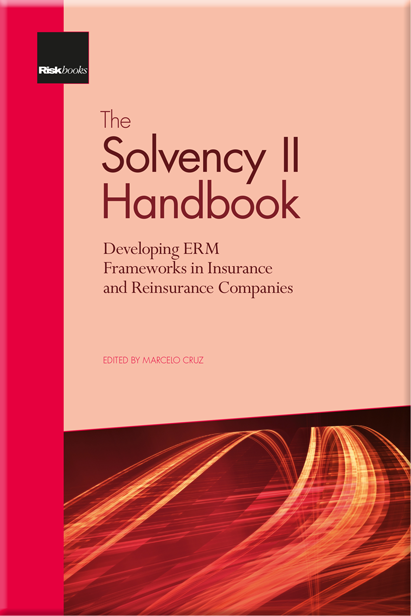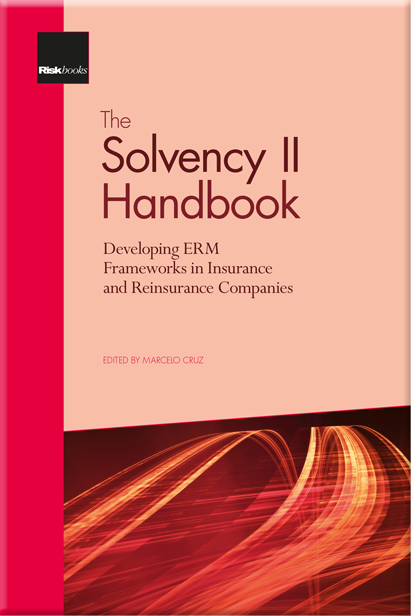The Solvency II Handbook
The Solvency II Handbook
Couldn't load pickup availability
The Solvency II framework directive was approved in 2009 2Q by the European Parliament, and the insurance industry must now move quickly with their preparations to be compliant with this framework. As Solvency II allows insurers to use internally developed models for measuring risks for the first time, this is quite a challenge for these companies. Solvency II follows Basel II’s similar three-pillar structure, which will regulate risk measurement requirements, supervisor review and market discipline and disclosure. The demands for Solvency II are quite extensive and will change the insurance industry worldwide with better risk assessment and mitigation and much higher financial and risk disclosure details.
The Solvency II Handbook provides an introduction and deeper look into the Solvency II framework, exploring in detail the current practices within the insurance industry and the impact of Solvency II; looking at what the issues and challenges of building an internal model are, risk management implementation as it is and, crucially, the regulatory perspective on calculating solvency capital requirements. The book then moves onto explore in greater depth how to measure and manage financial risk, insurance risk, operational risk as well as providing key chapters on economic capital and hedging.
The relevant regulatory bodies will be looking to govern and approve company’s internal models. This must-read book is essential to all insurers and reinsurers who are currently in the process of choosing between using the standard formula or, in particular, developing their own internal risk management framework.
For practitioners and regulators, this is a one-stop reference tool that contains vital thinking on internal modelling ideas and how to prepare for Solvency II compliance.
Share

More information
About the Author
Table of contents
List of Figures
List of Tables
About the Editor
About the Authors
Introduction
Marcelo Cruz
New York University
SECTION 1: INTRODUCTION TO THE SOLVENCY II REGIME
Introduction
1.Risk Management Implementation in the Insurance Industry
René Doff
Eureko/Achmea, Universiteit van Amsterdam
2.Heading in the Same Direction: IFRS 4 Phase II and Solvency II
Francesco Nagari
Deloitte LLP
3.Building Internal Models: Preparing for Solvency II
Stephan Erasmus, Gaurav Kwatra
Watson Wyatt
4.Using Internal Models to Determine the Solvency Capital Requirement: the Regulatory View
Paul Cadoni
Financial Services Authority
5.Market Consistent Embedded Value and Solvency II
Kamran Foroughi
Towers Perrin
SECTION 2: MEASURING AND MANAGING FINANCIAL RISK
Introduction
6.Solvency II and Economic Scenario Generation
Thorsten Pfeiffer; Elliot Varnell; Russell Ward
FINMA; KPMG LLP; Ernst and Young LLP
7.Market Risk Measurement Under Solvency II
Michele Bourdeau
Federal Reserve Bank of New York
8.Vanilla Option Replication of ALM Shortfall Risks for Life and Pension Liabilities
Rahul Karkun, Juliana Kim Moustakas, Idriss Amor
Bank of America
9.Liquidity Risk Analysis Framework in Insurance
Ioannis Akkizidis; Kris Luyten
FRSGlobal Switzerland; riskVentures
10.Reinsurance Credit Risk
Rainer Sachs
Munich Re
SECTION 3: MEASURING AND MANAGING INSURANCE RISK
Introduction
11.Solvency II for property-casualty insurers
Kathleen Ehrlich; Heinrich R. Schradin
University of Cologne
12.Optimization of the Non-Life Insurance Risk Diversification in Solvency II
Werner Hürlimann
FRSGlobal Switzerland
13.On the Non-Life Solvency II Model
Werner Hürlimann
FRSGlobal Switzerland
14.Solvency Requirements for Life Annuities Allowing for Mortality Risks: Internal Models vs Standard Formulae
Annamaria Olivieri; Ermanno Pitacco
University of Parma; University of Trieste
15.Risk Assessment of Life Insurance Contracts: a Comparative Study in a Lévy Framework
Nadine Gatzert; Stefan Kassberger
University of Erlangen-Nuremberg; Ulm University
16.Demographic Assets and the Asset Allocation Problem for Pension Funds
Francesco Menoncin
Brescia University
17.On the Optimal SST Initial Capital of a Life Contract
Werner Hürlimann
FRSGlobal Switzerland
SECTION 4: MEASURING AND MANAGING OPERATIONAL RISK
Introduction
18.Modeling and Measuring Operational Risk in Insurance Companies
Marcelo Cruz
New York University
SECTION 5: ECONOMIC CAPITAL AND HEDGING UNDER SOLVENCY II
Introduction
19.Corporate Decision Making Using Economic Capital Models
Susan E. Witcraft
Guy Carpenter & Company, LLC
20.Risk Sharing in Insurance Groups
Tamas Mayer; Andreas; Philipp Keller; Helga Portmann
Ernst & Young Ltd; AXA Winterthur; Deloitte LLP; Federal Office of Public Health
21.Dependency and Copulas
Andrew D. Smith
Deloitte LLP
22.Hedging Inflation-Linked Pension Liabilities under Solvency II
Mark Schouten, Albert Mentink; Roy Kouwenberg
AEGON Netherlands; Madihol University, Erasmus University Rotterdam

